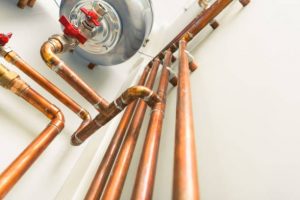The hot water system should be a priority during the design process of a new multi-residential building. Multi-residential buildings typically have limited space, and fittings are not readily available. Your choice of hot water system will depend on the space available in the apartments, typical outdoor temperatures, additional electrical load, water restrictions, and average consumption. You can also find hot water systems with easy-to-install plumbing. Here are some tips for choosing the right system for your building.
 Energy-efficient – Modern hot water systems use much less power than older storage models. They’re often installed outside and don’t require a chimney or flue. And they reduce energy use by as much as 90%. If you’re looking to improve your energy efficiency, consider a heat pump hot water system. These models require electricity but produce hot water without fossil fuels. Ultimately, you’ll be saving money on electricity bills and the environment.
Energy-efficient – Modern hot water systems use much less power than older storage models. They’re often installed outside and don’t require a chimney or flue. And they reduce energy use by as much as 90%. If you’re looking to improve your energy efficiency, consider a heat pump hot water system. These models require electricity but produce hot water without fossil fuels. Ultimately, you’ll be saving money on electricity bills and the environment.
Heating and cooling: The main components of a hot water system are the boiler and the hot water system. A boiler heats water to about 60-83 degrees Celsius. Then, pipes connect the water supply to radiators or coil units. These units circulate the water, often using pressure or gravity. For more efficient circulation, forced circulation using a pump is a better option. In addition to the water, radiators and coil units give off heat by convection and radiation.
Plumbing – Electric tankless water heaters are good for upgrading an old hot water system. While the process is straightforward, it’s worth speaking with a plumber before making a final decision. Plumbing professionals have dealt with hundreds of hot water systems over the years, and they can provide expert advice on many aspects. They can also install new water heaters and repair problems if necessary. The benefits of electric tankless hot water heaters are many.
Electric hot water heaters are the most commonly installed and affordable option for homeowners. They can be used in homes and office spaces. The disadvantages of gas hot water heaters include requiring a gas connection to your home, which may not be available in your area. Propane heaters are also cumbersome. Electric hot water heaters are easy to maintain and last longer than gas models. But electric hot water heaters are also less expensive than gas ones.
The https://www.distinctplumbing.com.au/ hot water systems Adelaide require electricity to heat the water. If the system isn’t used often, you can store the hot water until you need it. Similarly, continuous hot water systems use gas and LPG to heat water. While storage systems require more energy, continuous systems save money by not using electricity during off-peak hours. So, when buying a new hot water system, consider the environmental impact of your choices before making a final decision.
Besides being environmentally friendly, closed-system hot water systems don’t have any gas lines that can damage your property. In addition, they are cheaper to run because they only heat water when you use it. Lastly, sealed-system hot water systems eliminate the need for water tanks and deliver hot water directly from the mains. Regardless of how you choose your hot water system, you can rest assured that you won’t run out of hot water!
Australians are drawn to cities and expect to live in compact spaces. This puts architects under increased pressure to create more with less space. Architects must keep up with changing trends and technologies. The right hot water system can free up space in a multi-residential development, reduce energy use, and lower the ongoing costs for residents. Architects can read this whitepaper to discover the benefits of decentralised hot water systems. This system is designed to make life easier for both architects and tenants.
Aside from a traditional boiler, you can also install a tandem tank to increase the capacity of your heat storage. A tandem tank is positioned near the main tank and connected by an inlet and outlet pipe. A pump connects the two tanks and allows you to add storage without disrupting your existing system. During the design process, you should consider the maximum output of your burner and how long you need to run between fuel loads.
In addition to its environmental benefits, and LPG-powered hot water system has a small footprint and requires less space for storage. An LPG hot water system is cost-effective for upgrading your current system or installing a new one. To learn more about LPG hot water systems, contact Gold Coast Hot Water today. It’s easy to find a local installer to help you install a hot water system in your home.